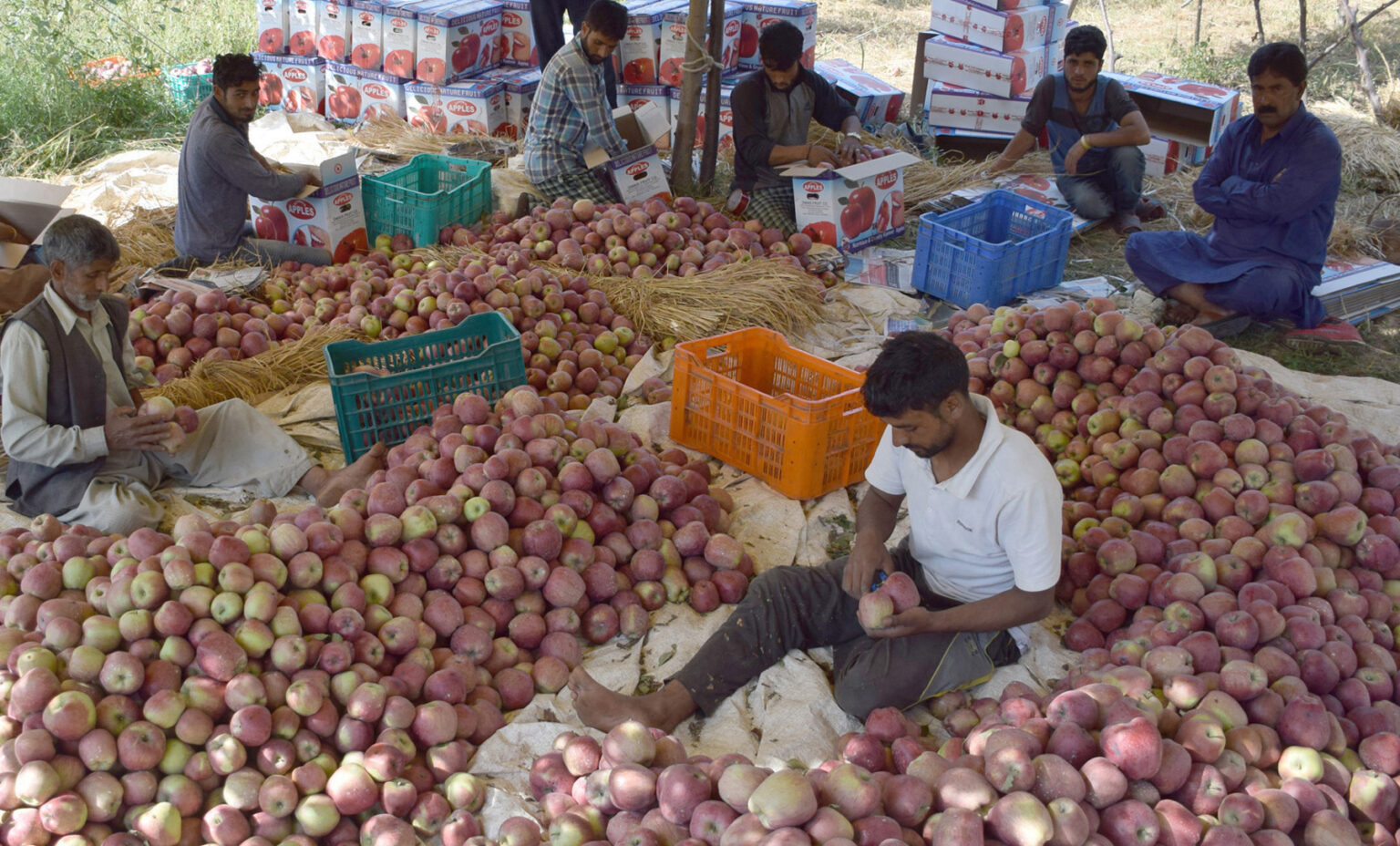Snow last year, and the year before that, fell in late autumn which hurt the orchards and, with it, weakened the horticulture sector. While orchardists survived these hard-hitting events, the latest set of troubles is mounting an unbearable pressure – one that can be difficult for many to survive.
The latest troubles couldn’t have come at a worse time. It is the time of the year when Kashmir’s apple farmers reap the benefits of their toil. With it comes a financial safeguard for the rest of the year till the next harvest.
But, the harvest this year has been bitter for many as the wholesale market has, literally, crashed. Seasoned farmers say the last time apples were sold at this rate was almost two decades back in 1995. According to some farmers, the rates in recent years had hovered around Rs 100 per kilogram which have now crashed to as low as Rs 20 per kilogram. A 16-kg box of apple sold till last year in the range of Rs 1200-1600 is now earning less than half of that.
The crash in the apple market has left the orchardists worried for the future as well as present. These rates, the farmers say, are unsustainable for the horticulture industry while some argue they are getting less than they had spent on pesticides and labour work.
This is not all. The list of worries is mounting as the growers and traders allege they are unable to transport truckloads of fruit to markets in Delhi and elsewhere as they face lengthy security-related halts along the 300-km long Srinagar-Jammu highway, where civilian traffic is frequently stopped to allow the movement of military and paramilitary convoys. This is causing the fruit to rot before it reaches the market.
The traders from Bangladesh, who used to import apples from Kashmir, have recently stated they will cease purchases from Kashmir as they have suffered significant losses caused by the frequent halts of their trucks along the Srinagar-Jammu highway. Even though the administration then initiated several measures to allow smooth passage of apple trucks, traders say the problem persists.
With such a foreground for the events, the horticulture industry of Kashmir, which has lived through the test of times, is now facing an existential crisis. The introduction of apples from Turkey and Iran in the Indian market has severely disturbed the market balance and eaten away the market share of Kashmiri apples and, as a result, apple growers in Kashmir are facing tremendous pressure.
There is, seemingly, little that can be done vis-à-vis imports from other countries. The import of apples from Turkey and Iran is a genuine trade affair and India, being a free market, cannot contain or limit these imports.
In such a scenario, it becomes important for Kashmir’s horticulture department to come up with remedial measures that can prove vital to sustain the region’s apple industry. Whether it is providing cold storage facilities at subsidised rates or introducing a new value-addition industry to the tons of apple produced in the region, a new strategy has to be devised.
The horticulture industry, and apple being the backbone of this industry in Kashmir, has to be saved and prioritized. This industry has served as the heart of Kashmir’s economy, making a contribution of Rs 5000 crore to the erstwhile state’s economy and making up for seven percent of the Gross Domestic Product.
The horticulture sector, directly or indirectly, provides and sustains the livelihood of seven lakh families and 33 lakh individuals who are involved in its trade at various stages. Apple farming and trade is also unique as it is based in all ten districts of Kashmir valley, making it one of the most widespread sectors and a major industry in the region. So the events impacting this industry cannot be passed off merely as passing events.
The horticulture sector has suffered badly because of the climatic distress over the last three years. It cannot sustain itself with a market crash. This should worry every resident of Kashmir as the region’s economy was strongly pushed towards stability by the apple-generated money that circulated through the economy. If this sector of economy falters, the broader economy of the region will falter.
This is why the administration should become proactive about apples. It should listen to the woes of the growers and traders. The highway hassles should have been resolved much before these fruit trucks were packed. The damage, already suffered by the traders due to halts along the highway, should be compensated.
The government should also set up a high-powered committee which can form a long-term strategy to mitigate the problems faced by growers and traders. The committee should also be tasked at finding viable and alternative measures that can encourage a value-addition industry that will not only safeguard the apple industry but also make it independent in the markets.
The private enterprises within Kashmir can also tap into this market of value-addition and set up factories where apples can be transformed from a fruit to a product. While it will generate revenue, it will also create employment avenues and a safe zone for the apple growers and traders.
